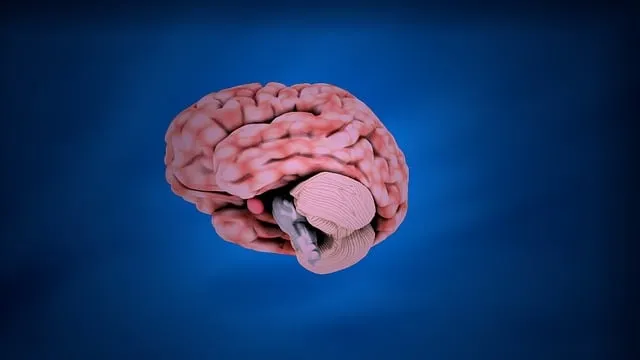The Centennial Kaiser Permanente Mental Health Appointment Center provides specialized trauma support services using evidence-based practices like CBT, mindfulness meditation, and journaling to help clients regain control over their lives. Their multi-disciplinary approach, holistic understanding of needs, and accessible environment empower individuals to overcome trauma's long-lasting effects on mental health. Challenges include accessibility and affordability for marginalized communities, but the center can lead future evolutions through partnerships, remote technologies, and staff training to create an inclusive trauma care system.
“In today’s complex healthcare landscape, trauma support services are more vital than ever. This article explores the profound impact of trauma and introduces the seminal role played by institutions like the Centennial Kaiser Permanente Mental Health Appointment Center in providing specialized care. We delve into key components that define effective trauma support, including early intervention, cultural sensitivity, and evidence-based practices. Additionally, we discuss challenges in trauma care and offer insights into future directions, emphasizing the ongoing evolution of services to meet the diverse needs of survivors.”
- Understanding Trauma and Its Impact
- The Role of Centennial Kaiser Permanente Mental Health Appointment Center
- Key Components of Effective Trauma Support Services
- Challenges and Future Directions in Trauma Care
Understanding Trauma and Its Impact

Trauma is a profound and complex experience that can have lasting effects on an individual’s mental health and overall well-being. It often arises from distressing events, such as accidents, violence, or prolonged exposure to challenging situations, leaving individuals with intense emotions and flashbacks. At the Centennial Kaiser Permanente Mental Health Appointment Center, we recognize that trauma affects people of all ages and backgrounds, and understanding its impact is a crucial first step in providing effective support.
The effects of trauma can manifest in various ways, including anxiety, depression, irritability, and difficulty regulating emotions. It may lead to avoidance behaviors, where individuals try to distance themselves from reminders of the traumatic event. This can make coping with everyday life challenging. That’s why our center offers specialized services aimed at helping individuals process and overcome trauma. Through evidence-based practices, such as teaching conflict resolution techniques and facilitating mental wellness journaling exercises, we empower clients to develop essential coping skills and regain a sense of control over their lives.
The Role of Centennial Kaiser Permanente Mental Health Appointment Center

The Centennial Kaiser Permanente Mental Health Appointment Center plays a pivotal role in providing comprehensive trauma support services. With its advanced infrastructure and dedicated mental health professionals, the center offers specialized care for individuals navigating trauma-related challenges. Here, patients can access various therapeutic modalities tailored to address complex emotional needs, including anxiety relief and stress management.
Centennial Kaiser Permanente’s expertise lies in facilitating effective coping mechanisms and promoting resilience through evidence-based practices. They emphasize the importance of mindfulness meditation as a powerful tool to help individuals regain control and find inner peace amidst traumatic experiences. This holistic approach ensures that patients receive nurturing support throughout their healing journey, fostering both emotional and psychological well-being.
Key Components of Effective Trauma Support Services

Effective trauma support services are characterized by several key components that ensure comprehensive care for individuals affected by traumatic events. One of the primary aspects is a multi-disciplinary approach, where professionals from various fields like psychology, social work, and nursing collaborate to offer tailored interventions. This integrated model ensures a holistic understanding of the individual’s needs, addressing not just the symptoms but also the underlying causes of trauma.
The role of accessible and accepting environments cannot be overstated, especially in centers like the Centennial Kaiser Permanente mental health appointment center. A safe, non-judgmental space encourages individuals to share their experiences openly. Additionally, these services should promote positive thinking and resilience through therapeutic techniques such as cognitive-behavioral therapy (CBT), ensuring that clients develop effective coping strategies. The overall goal is to empower individuals to reclaim their lives post-trauma, with a focus on long-term mental health policy analysis and advocacy to reduce the societal stigma associated with mental illness.
Challenges and Future Directions in Trauma Care

Despite significant strides in trauma support services, several challenges persist. One major hurdle is ensuring accessibility and affordability for all individuals, especially marginalized communities, who often face barriers to care such as financial constraints or a lack of culturally competent resources. Additionally, integrating trauma-informed care into mainstream healthcare remains a work in progress, with many providers still lacking adequate training on recognizing and addressing trauma’s impact.
Looking ahead, the future of trauma care lies in holistic approaches that prioritize not just treatment but also self-esteem improvement, stress reduction methods, and self-care practices. The Centennial Kaiser Permanente mental health appointment center can play a pivotal role in this evolution by fostering partnerships with community organizations, adopting innovative technologies for remote support, and continuously educating its staff on the latest evidence-based practices. By doing so, they can contribute to a more inclusive and effective trauma care system that meets the diverse needs of all individuals.
Trauma support services play a pivotal role in healing individuals affected by traumatic events. The Centennial Kaiser Permanente Mental Health Appointment Center stands as a beacon of hope, offering specialized care and resources. By integrating evidence-based practices and focusing on key components like safety, trust, and cultural competency, the center ensures effective trauma support. While challenges remain, continuous improvement and innovation in trauma care, including leveraging technology and expanding access to services, will contribute to building a more resilient and supportive community. The comprehensive approach of the Centennial Kaiser Permanente Mental Health Appointment Center serves as a model for enhancing trauma support services across various settings.






